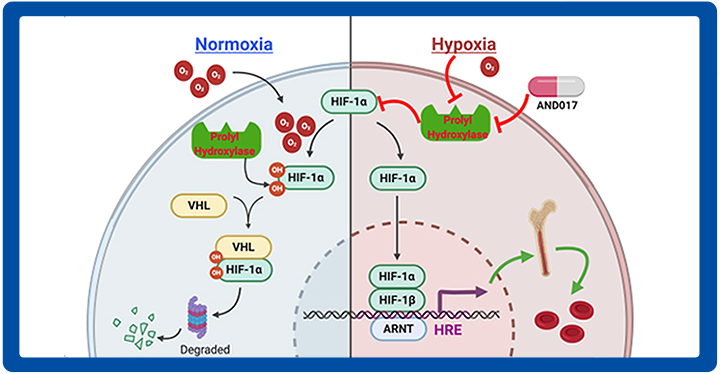 Our products
Our products
In normoxia, the enzyme prolyl hydroxylase (PH) hydroxylates hypoxia-inducible factor (HIF), and hydroxylated HIF is then recognized by a ubiquitin E3 ligase to mediate proteasomal degradation. However, in hypoxia condition, PHI is inhibited, and HIF is then stabilized and translocates into the nucleus to induce the expression of its downstream target gene expression. Several gene products work together to promote the production of red blood cells.
CKD induced anemia reduces the life quality and life expectancy of millions of patients. The current treatments, rhEPO and other erythropoiesis-stimulating agents (ESAs), have severe side effects. Therefore, there is an urgent medical need to find a replacement for ESAs with improved efficacy and safety profile.
AND017, a small molecular inhibitor of prolyl hydroxylase (PHI), mimics the natural physiological regulation under hypoxia condition to stabilize HIF and promote the production of red blood cells to treat anemia. This PHI can be orally administered without supplement of intravenous iron; thus, it is anticipated to improve patients' compliance. Most importantly, PHIs are expected to have a reduced risk of cardiovascular events, allowing PHIs to revolutionize the treatment of CKD induced anemia.
The structure of AND017 was discreetly designed to have high potency, superior desired tissue distribution, and excellent druggability; we believe that AND017 has the best-in-class potential among the existing PHIs in treating CKD induced anemia. AND017 program is under Phase II clinical development.